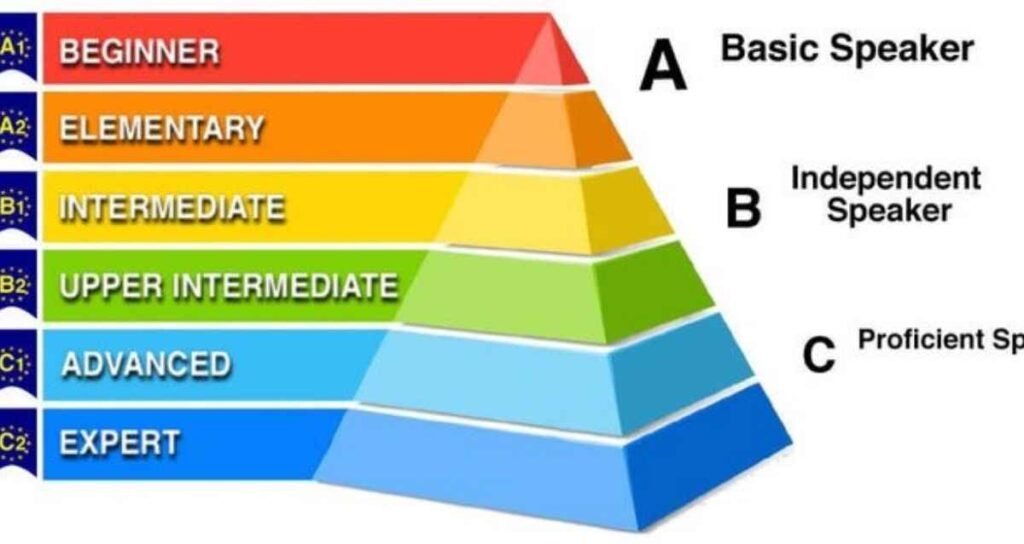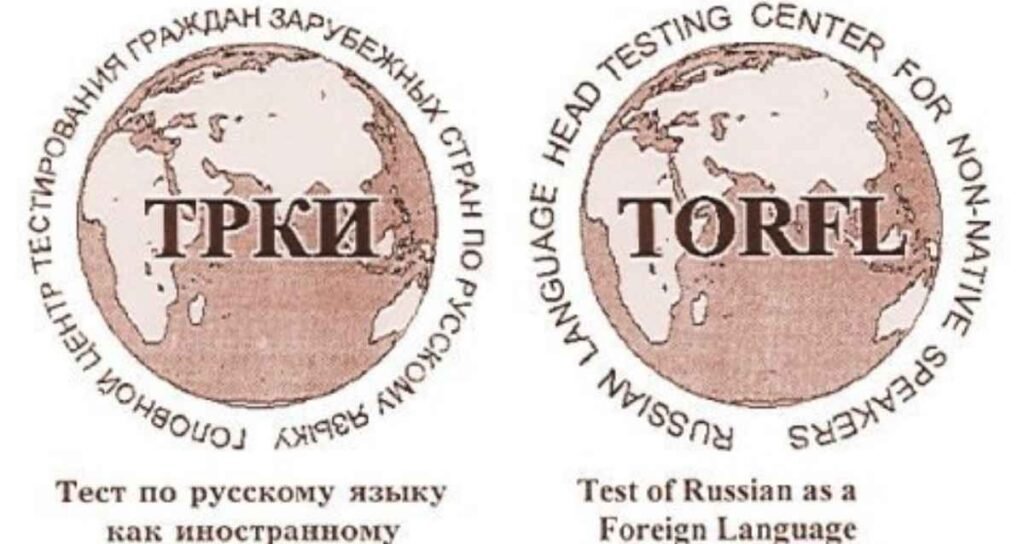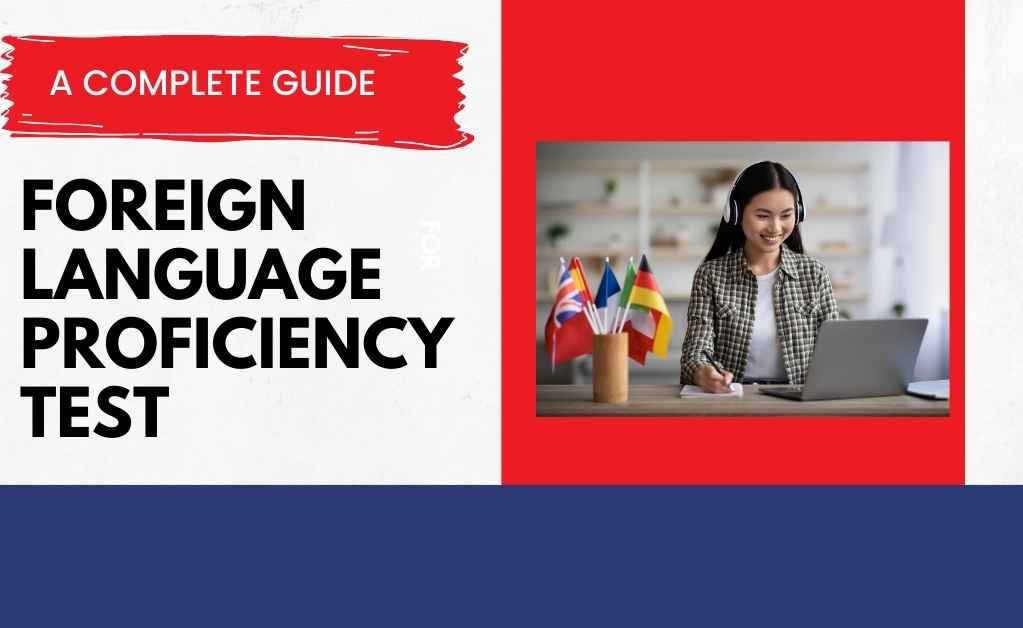valuable skill that opens doors to global opportunities. One of the most effective ways to measure your language ability is through a Foreign Language Proficiency Test. Whether you are learning Japanese, German, French, Korean, or Chinese, these tests provide a standardized way to evaluate your reading, writing, listening, and speaking skills. Institutions like TILS – Team International Language School offer guidance and preparation for such tests, making language learning structured and effective.
What is a Foreign Language Proficiency Exam?
A foreign language proficiency exam is a standardized test designed to evaluate your ability to use a foreign language effectively. These exams are widely recognized by universities, employers, and government authorities. They assess multiple skills such as grammar, vocabulary, comprehension, and speaking ability.
Such exams serve multiple purposes: validating language skills for academic or professional use, supporting visa applications, or boosting employability in international organizations. Popular tests include JLPT for Japanese, HSK for Chinese, DELE for Spanish, and Goethe-Zertifikat for German. Many of these exams are also available as foreign language proficiency test online, allowing learners to prepare and practice remotely.

If you’re looking to enhance your skills, you can check out the best foreign language classes near East Delhi for convenient learning options.
Benefits of Foreign Language Proficiency Test
The language proficiency test is beneficial for obvious reasons.
You can also use it as adequate proof of knowledge in a specific language. It can also help significantly in satisfying the demands of both employees and employers alike.
A foreign language test emboldens the academic qualifications of an employee seeking a particular job that uses language.
The documentary proof of language test certificate, added to other requirements, will help you prepare for a smooth interview process.
This is due to your language test certification being included in your qualifications.
They are significant for business organizations, educational institutions, and government establishments to know more about prospective employees or candidates’ language skills and personalities.
It is also mandatory for a wide range of UG, PG, and Doctorate courses in thousands of Colleges and Universities worldwide. Thus, it will open a world of job possibilities globally and support career advancement.
Another great advantage of such is that it becomes a confidence booster right when you pass it.
It can translate into developing your personality at a career and social transitioning level.
It will also assist with your Visa or PR application, travel abroad, and confirm your proficiency level.
With professional guidance from TILS, learners can take advantage of free resources, sample tests, and online practice to improve their scores efficiently.
11 Most Popular Language Exams
As far as foreign language proficiency exams are concerned, there are plenty of fish in the sea.
Choose the one that fits your fluency level, requirement, and convenience.
Since different rules and test patterns exist, one should ask the institution what tests it requires and accepts.
Here is the list of the most prestigious and widely-recognized foreign language proficiency tests in India for top foreign languages.

1. French Proficiency Test
Parlez-vous Français?
Find out the exact level when you take a French language proficiency test such as DELF, DALF, TEF, TCF, etc.
As the number of people learning French is speedily growing worldwide, so are the opportunities to use their skills in a wide array of careers.
It has led to the demand for French in India in many sectors and industries.
The French diplomas can add considerable value to your CV and enable you to study in any Francophone country.
To speed up your progress, follow this structured guide on how to learn a new language in 90 days step-by-step plan.
A) DELF and DALF
Have you been burning the midnight oil to learn French in India?
If so, imagine having your hard work officially recognized by taking the DELF (Diplôme d’Etudes en Langue Française) and then the DALF (Diplôme approfondi de Langue Française).
Official Websites-: https://afdelhi.org/delf-dalf-exams/
Both DELF and DALF are diplomas awarded by the French Ministry of Education.
The 4 DELF levels (A1, A2, B1, B2) evaluate beginners to higher intermediate levels, while the 2 DALF exams (C1, C2) are for proficient students.
Each has its accompanying CEFR level marking. At each level, four skills are evaluated: speaking, listening, reading, and writing.
These foreign language proficiency tests are valid for life and recognized globally.
The many DELF Exam centers are located at different Alliance Française branches.
Plus, DELF Prim (ages 8-12), DELF Junior (ages 12+), and DELF Pro for adults interested in integrating into a French-speaking country.
B) TEF and TCF
Are you looking to immigrate to Canada, Quebec, or France?
You cannot afford to miss the Test d’ Évaluation de Français (TEF) or Test de Connaissance du Français (TCF).
Both exams are regarded as an international benchmark language proficiency test online that gauges your skill and knowledge in French.
The TEF exam follows more or less the same pattern and style as the TCF.
There are FIVE different TEF and TCF exams for various purposes, ranging from academic or professional reasons to French citizenship.
If you intend to reside in Canada or Quebec province, you must take the TEF/TCF Canada or TEFAQ/TCFQ.
Your scores will be valid for TWO years in both TCF and TEF.
The main difference between DELF & DALF and TCF & TEF is that the latter is one single test. Thus, your score will determine the points awarded for language proficiency certification.
AF networks are the authorized TCF and TEF exam centers in India.
For professional advantages, explore the benefits of foreign languages for career growth and how they can open global opportunities.
2. Spanish Proficiency Test
Should you learn Spanish? Spanish is a vital global language with benefits for hobbies, immigration, study abroad, and career opportunities.
To prove your ability, you can take either DELE or SIELE.
A) DELE
DELE (Diploma de Español Como Lengua Extranjera) is administered by Instituto Cervantes under the Spanish Ministry of Education. Conducted four times a year (April, May, July, November), it tests listening, speaking, reading, and writing. DELE certificates are mostly valid for life and follow CEFR levels (A1–C2). The DELE Exam is conducted in India by Instituto Cervantes.
Official Website of DELE-: https://www.dele.org/
B) SIELE
SIELE (Servicio Internacional de Evaluación de la Lengua Española) electronically certifies Spanish proficiency across reading, listening, writing, and speaking. Supported by the Cervantes Institute and top universities in Latin America and Spain, SIELE scores are based on a 1000-point scale and valid for five years. It provides a competitive edge for students and professionals and is a valuable addition to your CV.
Official Website of SIELE -: https://siele.org/en/examen
3. German — ZD, TestDaF, DSH & More
If you plan to study in Germany, Switzerland, or Austria, you can take German proficiency tests such as Zertifikat Deutsch (ZD), TestDaF, DSH, TELC, ÖSD, or ÖIF.
Zertifikat Deutsch (ZD) helps evaluate your German skills from A1 (beginner) to C2 (advanced) following CEFR guidelines. Passing the Goethe-Zertifikat C2 (GDS) allows admission to German universities.
TELC (The European Language Certification) partners with the German government, following CEFR standards, and lets you choose exam areas.
TestDaF and DSH are required for higher education in Germany where teaching is in German, corresponding to CEFR levels B2–C1. These certificates are widely recognized by universities in Germany, Austria, and Switzerland. The Goethe-Institut conducts the TestDaF exam in India.
If you are confused about which one to pick, here’s a list of the best international languages to learn in 2025.
4. Chinese Mandarin — HSK
If you want to test your Mandarin skills, you can take the Hanyu Shuiping Kaoshi (HSK) exam, administered by Hanban under the Chinese Ministry of Education. The HSK evaluates proficiency across six levels, from HSK1 (beginner) to HSK6 (advanced).
The HSK also includes an oral component, HSKK, divided into Elementary, Intermediate, and Advanced levels. Candidates can choose the appropriate level before taking the test.
With China’s rapid economic growth, Mandarin has become highly valuable for careers in business, trade, and international relations. In India, HSK exams are increasingly popular due to growing career opportunities. Fees start at ₹1,500 for HSK1 and rise to ₹6,500 for HSK6, making it accessible for learners at all levels.
5. Korean — TOPIK
The Test of Proficiency in Korean (TOPIK) is the official assessment for measuring Korean language skills for non-native speakers. It evaluates listening, reading, and writing abilities and is designed to gauge overall language proficiency.
Official website-: https://cdn.topik.go.kr/register.html
TOPIK is divided into two main levels:
- TOPIK-I: Beginner level, subdivided into Level 1 and Level 2.
- TOPIK-II: Intermediate to advanced level, subdivided into Levels 3, 4, 5, and 6.
In Korea, the test is conducted six times a year, while in other countries, including India, it is held twice annually — in April and October. The certification is valid for two years from the date of issue.
TOPIK is widely recognized for academic and professional purposes. Many Korean companies require TOPIK certification for hiring employees, and it is also used by universities for admissions of international students. Additionally, TOPIK scores can assist in applying for residency in South Korea.
By obtaining a TOPIK certificate, learners can enhance career opportunities, secure jobs in Korean companies, and demonstrate verified language proficiency for various professional and educational purposes.
6. Japanese — JLPT
The Japanese Language Proficiency Test (JLPT) is the most widely recognized certification for measuring Japanese language skills among non-native speakers. It serves as a benchmark for assessing reading, listening, grammar, and vocabulary proficiency.
Official Website-: https://www.jlpt.jp/e/
For learners and professionals, job opportunities involving Japanese are highly attractive, especially in multinational companies, translation services, and Japanese firms operating in India and abroad.
The JLPT is organized by JEES in Japan and administered internationally by the Japan Foundation. It has five levels, ranging from N5 (beginner) to N1 (advanced), with N1 being the most challenging and N5 the easiest. Each level evaluates different aspects of the language, including comprehension, grammar, vocabulary, and listening skills.
In India, there are 7 JLPT exam centers, and the test is conducted twice a year, in July and December. The exam fees range from Rs. 1,000 to Rs. 1,500, depending on the level. Once obtained, the JLPT certification is valid for life, making it a valuable credential for career growth, academic purposes, and opportunities abroad.
Taking the JLPT also enhances language credibility, boosts confidence, and provides proof of Japanese proficiency for employment, study, and cultural immersion.
7. Russian — TORFL
The Test of Russian as a Foreign Language (TORFL) is the official certification for non-native speakers to evaluate their proficiency in Russian. If you are learning Russian in India, TORFL provides an internationally recognized standard to measure your language skills.
The exam is administered by the Russian Ministry of Education and Science and assesses candidates across five key competencies: writing, vocabulary/grammar, speaking, reading, and listening. Each skill is equally weighted at 20%, ensuring a balanced evaluation of your overall language ability.
TORFL is divided into multiple levels, from Elementary (A1) to Advanced (C2), corresponding to the Common European Framework of Reference for Languages (CEFR). This allows learners at any stage—beginner, intermediate, or advanced—to certify their proficiency according to international standards.
Passing TORFL opens up numerous academic and career opportunities, including studying at Russian universities, applying for scholarships, or pursuing careers in translation, international relations, and global business. The certificate is also valuable for enhancing your resume, demonstrating your linguistic competence to potential employers or academic institutions worldwide.
With proper preparation, including practice in all five competencies, learners can confidently take the TORFL and gain an official certification that strengthens their Russian language credentials.

8. Arabic — ALPT
The Arabic Language Proficiency Test (ALPT) was developed in 2002 to evaluate the ability of non-native speakers in Arabic. Recognized globally, it serves as a standard for reliability and validity in Arabic language assessment.
The test evaluates five core skills: writing, reading, structure, listening, and speaking. It is typically conducted online, requiring access to a computer and internet connectivity. ALPT certification is widely accepted by educational institutions, businesses, and organizations globally. For learners in India, the ALPT offers an official way to demonstrate Arabic proficiency for academic, professional, or personal purposes.
Students interested in Japanese can discover the best places to learn Japanese in Delhi with expert guidance.
9. Portuguese — CAPLE
The CAPLE (Centre for Evaluation of Portuguese as a Foreign Language) is an internationally recognized Portuguese language exam offered in Portugal and over 45 countries. CAPLE evaluates European Portuguese, while the CELPE-Bras certificate is used for Brazilian Portuguese proficiency.
The CAPLE exam is divided into six levels: ACESSO (A1), CIPLE (A2), DEPLE (B1), DIPLE (B2), DAPLE (C1), DUPLE (C2), covering beginner to advanced learners. Certificates and diplomas do not expire and are accepted throughout Portugal. In India, the Camões Institute in New Delhi is the official exam center for CAPLE, enabling students to certify their Portuguese skills for study, work, or immigration purposes.
10. Italian — CILS, CELI, PLIDA, CIC, IT
For learners of Italian, there are multiple internationally recognized exams, including CILS, CELI, PLIDA, CIC, and IT, that assess language proficiency at various levels. These tests evaluate speaking, listening, reading, and writing, and are designed for academic, professional, or personal purposes.
The CILS exam, conducted in India at the Italian Embassy Culture Centers in New Delhi and Mumbai, is one of the most widely recognized certifications. These exams are ideal for students planning to study in Italy, professionals seeking international opportunities, or anyone aiming to validate their Italian language skills officially.
11. Dutch — CNaVT & NT2
If you are learning Dutch, you can take the CNaVT (Certificaat Nederlands Als Vreemde Taal) test, which certifies Dutch proficiency for study, work, or immigration purposes. It is widely recognized in the Netherlands, Belgium, and globally as proof of language competence.
Another prominent Dutch exam is the Staatsexamen NT2, which is primarily used for higher education or employment in the Netherlands. Both CNaVT and NT2 follow the CEFR guidelines, offering certification at multiple levels from beginner to advanced. These exams are conducted regularly and serve as official documentation of Dutch language skills, providing learners a competitive edge internationally.
How TILS Helps You Prepare
TILS – Team International Language School is dedicated to helping learners succeed in foreign language proficiency tests. Here’s how TILS can assist:
- Structured Courses: TILS offers beginner, intermediate, and advanced courses tailored to different proficiency test levels.
- Experienced Tutors: Certified instructors provide guidance, correct mistakes, and offer tips to tackle exams confidently.
- Online & Offline Learning: Flexible learning options include foreign language proficiency test online practice and classroom sessions.
- Practice Materials: TILS provides sample tests, PDFs, and mock exams to ensure learners are fully prepared.
- Certification Support: Guidance on official test registration, exam strategy, and preparation for achieving a globally recognized language proficiency test certification.
FAQ on Foreign Language Proficiency Test
1. What is A1, A2, B1, B2 in languages?
A1, A2, B1, and B2 are levels defined by the CEFR (Common European Framework of Reference for Languages) to indicate language proficiency. A1/A2 are beginner levels, B1/B2 are intermediate, and passing these levels demonstrates your ability to communicate effectively. TILS – Team International Language School helps learners progress systematically through these levels.
2. What is a language proficiency test?
A language proficiency test assesses your ability to read, write, speak, and understand a foreign language. Tests like JLPT, DELF, DELE, or TOPIK provide official certification, which can boost academic, career, or immigration opportunities. TILS offers guidance to prepare for these exams efficiently.
3. What are the 5 levels of language proficiency?
The five levels usually refer to Beginner, Elementary, Intermediate, Upper-Intermediate, and Advanced, or CEFR’s A1–C2 scale. Each level measures competency in speaking, listening, reading, and writing, showing how well you can use the language in real situations.
4. How do you pass a language proficiency test?
Passing requires structured practice, understanding the test pattern, and focusing on the four key skills: listening, speaking, reading, and writing. TILS provides expert coaching, mock tests, and study materials to increase your chances of success.
5. What is the hardest language proficiency test?
The difficulty depends on your native language. Generally, tests like JLPT N1 (Japanese), HSK 6 (Mandarin), or C2-level DELE (Spanish) are considered challenging due to complex grammar, vocabulary, and comprehension requirements.
6. Is LanguageCert easier than IELTS?
LanguageCert and IELTS both assess English proficiency but differ in format. Many learners find LanguageCert more flexible and convenient because it offers online testing and modular scoring, making preparation at TILS smoother.
7. Is LanguageCert accepted internationally?
Yes, LanguageCert certificates are widely accepted by educational institutions, employers, and governments worldwide, similar to IELTS. TILS can help you understand where and how to use your certificate effectively.
8. Which is the easiest language proficiency test?
Easiest depends on your familiarity with the language. For English, tests like LanguageCert A1/A2 are considered beginner-friendly, while for other languages, initial CEFR levels (A1/A2) are the simplest. TILS designs courses to make these beginner levels achievable.
9. What is A1, A2, B1, B2, C1, C2 in IELTS?
These are CEFR equivalents for IELTS scores, helping learners understand their level globally: A1/A2 = basic, B1/B2 = intermediate, C1/C2 = advanced proficiency. TILS guides students to target their desired band efficiently.
10. Does IELTS expire?
Yes, IELTS scores are valid for two years from the test date. After that, you may need to retake the exam to prove current proficiency. TILS provides refresher courses for candidates aiming to update their scores.
Final Thought
A Foreign Language Proficiency Test is more than an exam—it is a validation of your efforts, a boost to your career, and a gateway to international opportunities. Whether you choose free online tests, sample PDFs, or certified exams, consistent practice and expert guidance are essential for success.
Institutions like TILS – Team International Language School offer structured courses, mock tests, and professional mentorship to help learners excel in their desired language exams. Start preparing today and let a Foreign Language Proficiency Test open doors to global opportunities for education, career, and personal growth.


